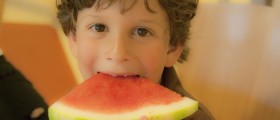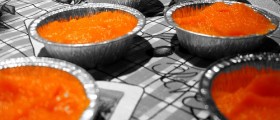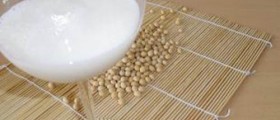
Starting at 12 months of age, a toddler begins a transition from infant’s food towards food more similar to the ones that adults eat. This does not mean parents should introduce new foods all of the sudden and all together. The passage must be gradual and adapted to the child’s needs and taste.
The variety of foods should be broadened gradually but persistently. It is at this age that a child acquires eating habits so it is important to introduce healthy foods over which the child will develop the taste for these things.
Around 15-18 months, toddlers start to explore self-feeding, first with fingers and later with forks and spoons. Learning to eat with utensils can sometimes be frustrating for the child, so parents must not push too hard.
Toddlers have a sense of internal urges to eat or to stop eating if they are full. These urges should be respected. Parents should offer a wide variety of foods and the toddler will decide which ones to eat. Insisting that certain foods must be eaten may create an aversion of the toddler towards that particular food.
Milk is important in a young child’s diet because of its calcium and Vitamin D content, which is important for normal bone development. Toddlers under the age of two require whole milk because the fats in milk are necessary for normal growth and brain functions. After that age, it is allowed to switch to low fat or nonfat milk.
The period between 12 and 18 months is the right time to switch from bottles to a cup. This process should be done gradually, and the bottle should not be removed completely in the first period. If switching from breastfeeding to a cup, the bottle should be avoided altogether.
Toddlers often refuse to drink cow’s milk because it tastes differently from the breast milk or the formula they are used to. In this case, the cow’s milk can be mixed with formula or breast milk until the child starts to like the taste of cow’s milk.
Iron is extremely important in a toddler's nutrition. It is necessary for the normal development and iron deficiency may lead to various physical, mental and behavioral problems, and also to anemia.
Therefore, the toddler’s diet must contain foods rich in iron, like poultry, fish, beans, tofu. Snacks and cereals should be iron-fortified.
When introducing new foods, parents should monitor their child for an allergic reaction. This particularly goes for whole eggs, fruit, peanuts and seafood. Foods that present a choking hazard should be avoided at first, and later, after the toddler starts eating them, it should be done under parental supervision.
The amount of food a toddler is supposed to eat is individual and it should be discussed with a doctor. It is, however, important that there is a clear eating schedule for all the meals, main ones and snacks. That way, a child will learn that there is an appropriate time to eat and will be expecting food at certain times of the day.













_f_280x120.jpg)



Your thoughts on this
Loading...